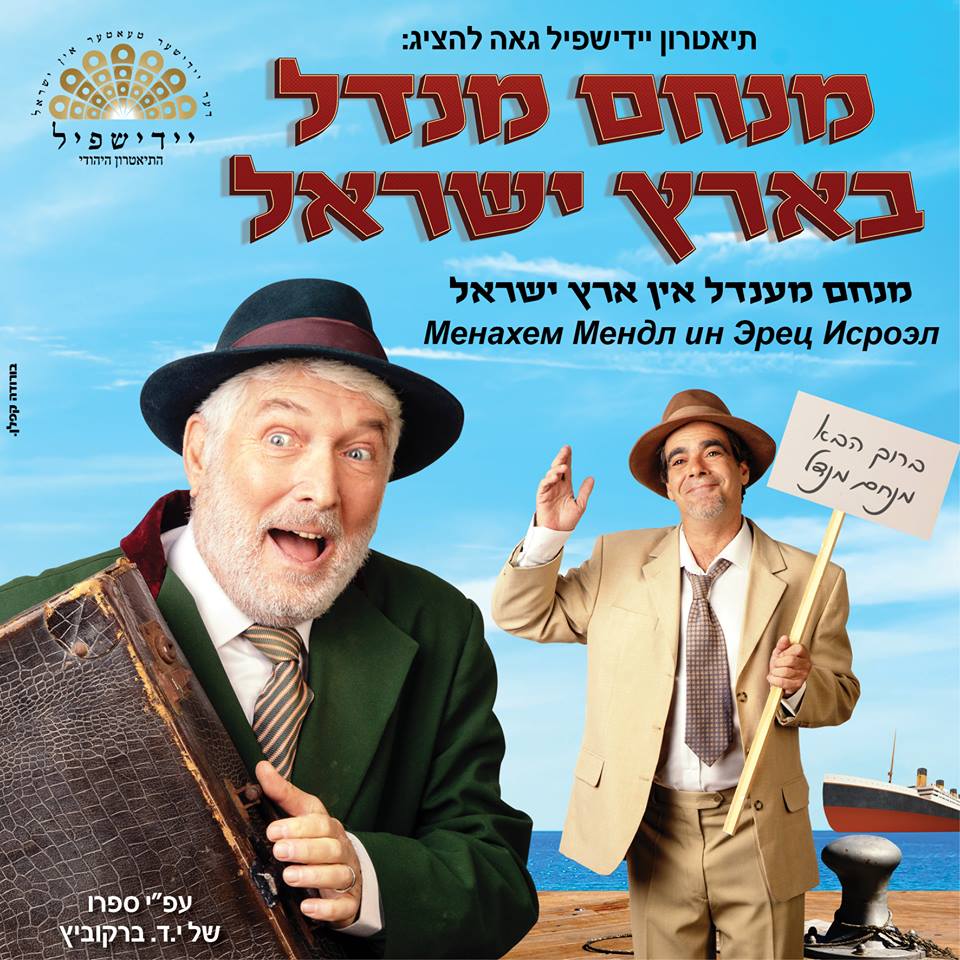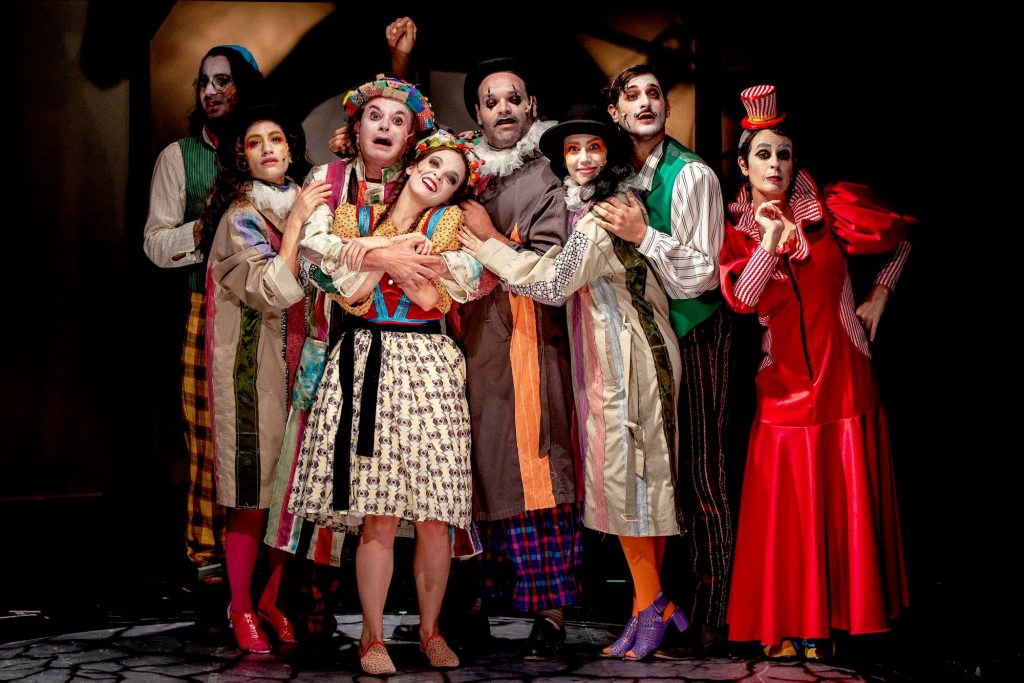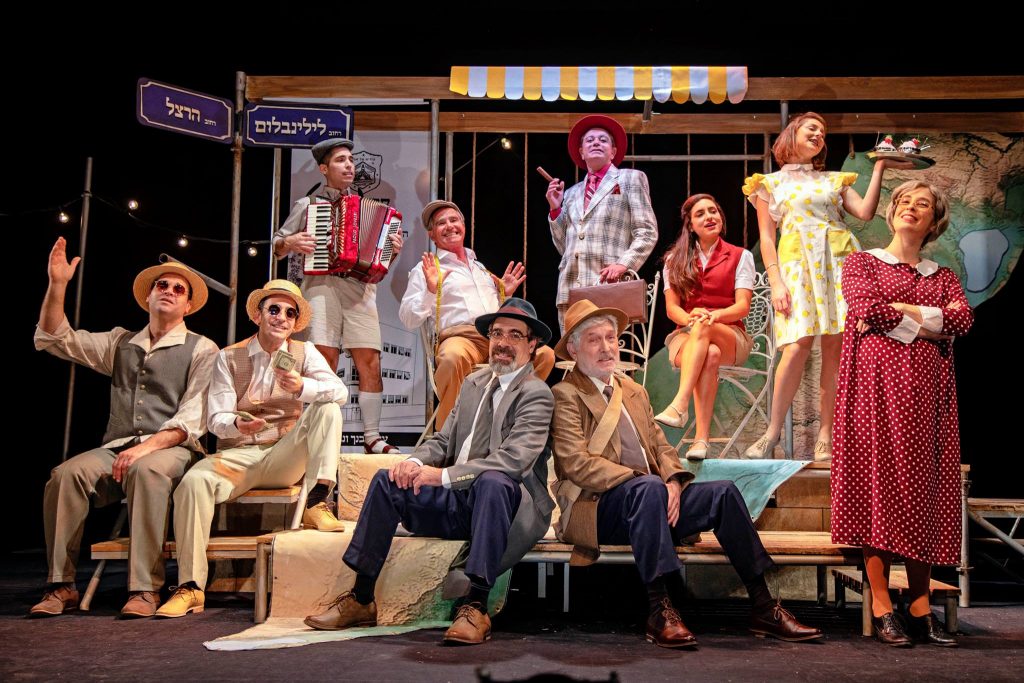Yiddishpiel, Israel’s only Yiddish theater presents a new satirical musical play by Y.D. Berkovich starring Shalom Aleichem’s character Menachem Mendel

My grandparents, all four of them, spoke their first words in Yiddish (literally, in the German: Jewish), the “mame lushen”, mummy’s language, a patois of sorts cobbled together from medieval German that the Jews encountered during their stay in that country on the way further East and the Holy Language, the father’s language, Hebrew.
By the late 1930’s more than ten million people from Kiev to New York spoke Yiddish as their first language . There were Yiddish newspapers in most European countries, and in America too, and Yiddish theater galore.

The Holocaust. Nazi Germany managed to come very close to not only annihilating the Ashkenazy Jewry, but also their language, Yiddish. Now, there are, according to Wikipedia, 1.5 million Yiddish speakers, but the real number of native speakers is likely no more than half a million, mostly in the ultra-Orthodox communities in Israel, Europe, and North America.
Zionism and Yiddish have always had a fraught relationship. For the young pioneers, all of whom were native Yiddish speakers, their mother tongue represented everything they wanted to put behind, everything they came to Eretz Israel to escape. The language of the warm home hearth in the dark Polish winters was out of place in the blazing Mediterranean sun. Its soft nuances and loving diminutives where a poor fit for the newly minted farmer warriors of the early days of Zionism.

Eretz Israel didn’t belong to the Ashkenazim. It belonged to all Jews, many of whom had nothing to do with Yiddish because they came from Yemen and Morocco and North Africa. The national revival movement of the Jewish people needed to go back to the language of the Tanakh, the Old Testament, the pre-Diaspora Jews – Hebrew.
Speaking Yiddish was actively discouraged in the early days of the Zionist movement and of the State of Israel, but now, with nearly seven million Jews living in the modern and prosperous Israel, all speaking Hebrew, with the world’s greatest technological breakthroughs being created in Hebrew and a spaceship carrying a Hebrew message well on its way to the moon, it is finally time to give the old mother’s tongue its long-deserved place in the spotlight.
Endless crisis At The Top Of The Iranian Regime, Zarif Resignation And Return
Since 1987, there has been only one Yiddish theater operating in Israel. Yiddishpiel is a theater on a mission, a mission to preserve the unique cultural legacy of Yiddish and of the Ashkenazi Jewry who gave it birth. Nothing will restore the Yiddish culture to its pre-Holocaust glory and maybe that’s just as well. The Diaspora and its languages are to be remembered, not restored. There is no going back to the dark days of Jewish impotence and defenselessness. But Yiddish culture is, and will always remain, a big part of Israel’s DNA and it is well-worth preserving.
The Yiddishpiel theater is coming out with a production of a play that is built around Shalom Aleichem’s famous character “Menachem Mendel”. The play encapsulates in it the early days of Zionism and the Jewish return to Eretz Israel. Passionate pioneers, hellbent of tilling the ancient soil a hoe in one hand a Bren machine gun in the other mingled with fresh off the boat Diaspora Jews arriving from pre-Holocaust Europe with their Yiddish language and mercantile ways.
The play, though set in 1930’s Tel-Aviv is as relevant as ever, because it turns out that to make Israel into what it is today it took both. It took the young fearless Hebrew-speaking pioneers and the old-world savvy Yiddish speaking “Menachem Mendlels”. It took Itzhak Rabin and Levi Eshkol. Together, they built it and it’s good that albeit in a small way the old language of our mothers is being recognized still.
The Hi-Tech Traditionalist: The First American Revolution Asked Patriots To Participate. The Second Will Ask Them To Refuse
The play is the work of Y.D. Berkovitch, who adapts the Menachem Mendel character from Shalom Aleichem and it takes the form of a satirical musical with period-correct musical numbers. For more details, please check out the Yiddishpiel Face Book page:


